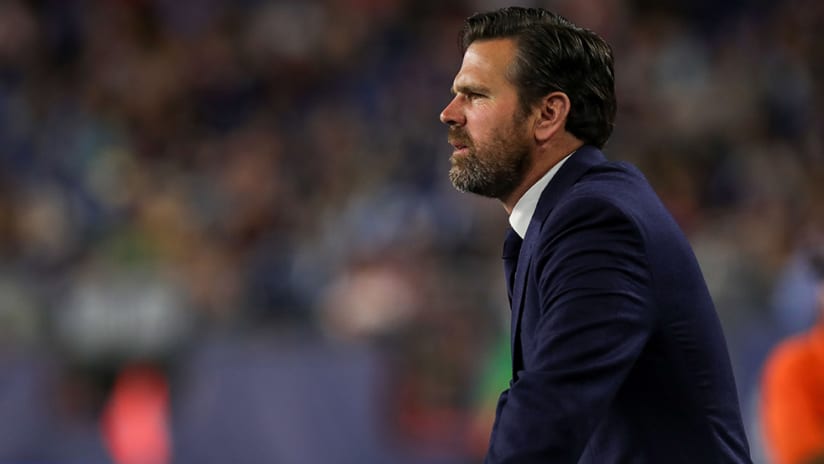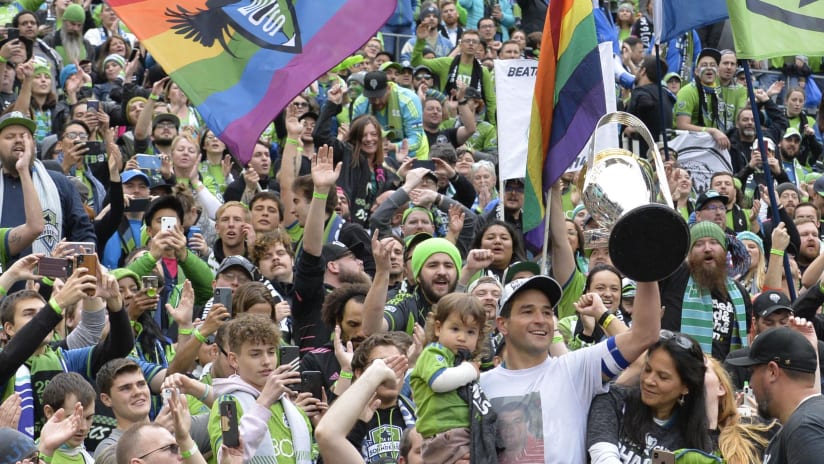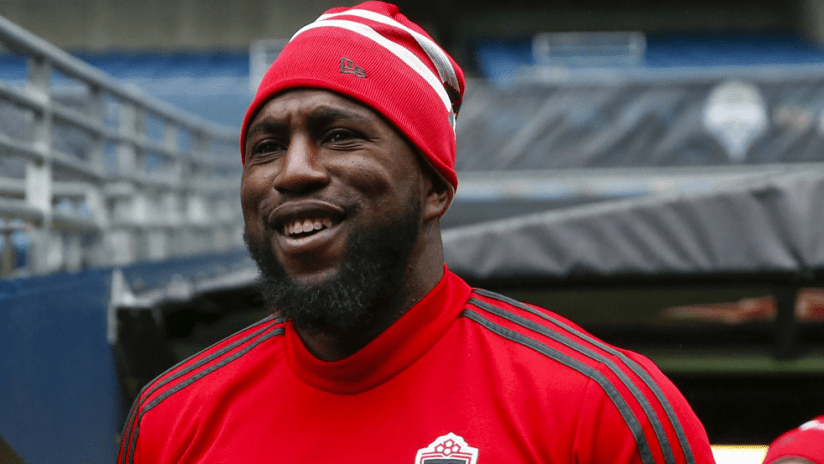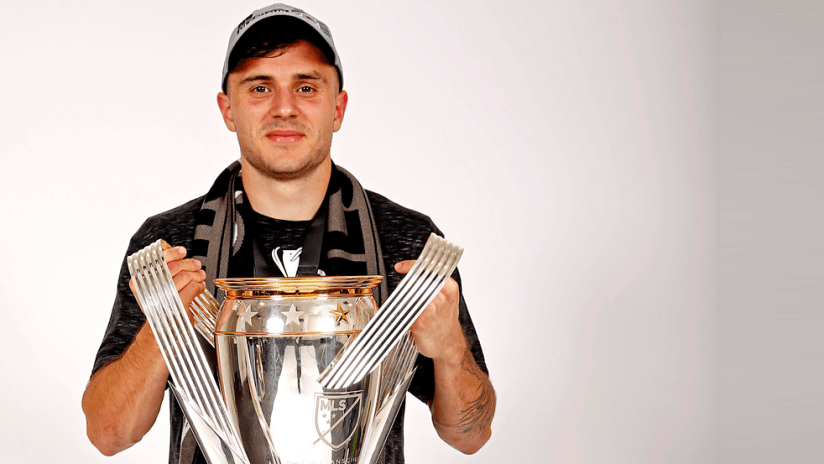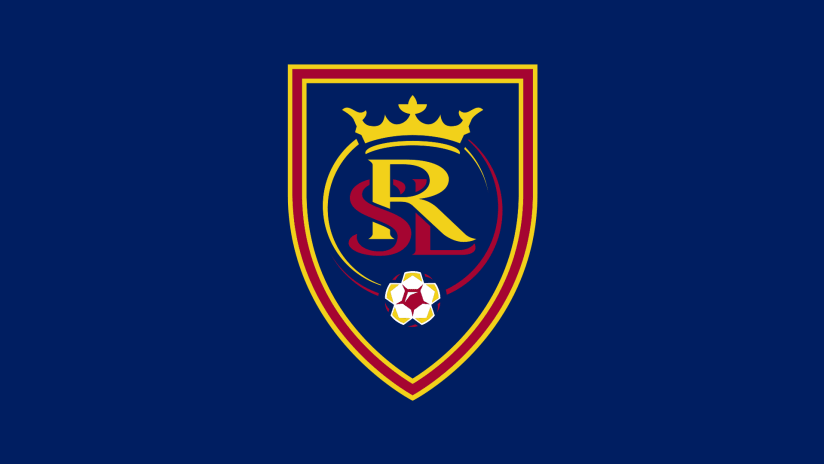TORONTO – Why do Toronto FC win?
It’s a simplistic question, but the usual answers tell a lot about how the Reds are perceived both at home and abroad. Most would point to the considerable investments made by owners Maple Leaf Sports & Entertainment, from Designated Players like Jozy Altidore, Michael Bradley and Alejandro Pozuelo to the expansion and refurbishment of BMO Field to the comfortable confines of the BMO Training Ground in suburban Toronto. Or perhaps the powerful organizational culture that’s been built to sustain multiple trophy hunts across MLS, the Canadian Championship and Concacaf Champions League.
Hardly anyone, it seems, ever gives a lion’s share of the credit to head coach Greg Vanney and his staff.
There’s no denying the impact of the substantial (and smart) spending that’s taken TFC from institutional dysfunction to near-dynasty status over the past five years. And a high-achievement culture is no doubt the platform that anchors this ambitious group. But the old versions of TFC weren’t exactly penny-pinchers, and plenty of other teams also have solid frameworks to undergird their pursuit of successful results.
Vanney, however, is the thread that runs through most – perhaps all – of Toronto’s greatest moments as a club. He was the Reds’ ninth manager in eight seasons when he took the helm back in the midst of a difficult 2014, promoted from academy director/assistant GM after the firing of Ryan Nelsen. Relatively few pundits would’ve bet big on his prospects of success, given that he’d arrived in The Six off the back of an assistant’s gig with Chivas USA, MLS’s basket case at the time, and stints in charge of the Goats’ and Real Salt Lake’s academies.
Five years later, TFC are making their third MLS Cup appearance in four years. They’ve lifted five major trophies during that time and won an unprecedented treble in 2017. And their coach says he’s still learning.
“I’ve always wanted to be a coach. Even when I was playing, I was involved in the idea of coaching and working with younger players,” said the former US international on Thursday as TFC trained at home one more time before jetting to Seattle for Sunday’s 2019 MLS Cup final (3 pm ET | ABC, Univision, TUDN, TSN, TVAS).
“So the process for me has just always been an open-minded one and trying to learn every day. It started working with younger players and that’s a level of teaching, and when you work with younger players you learn how to get your message as clear as possible, you learn how to nurture a little bit … you develop some of your ideas playing-wise and you get to test them out where you’re not in the biggest environment, being scrutinized all the time. For me there was always that, but then always some management stuff, because I didn’t just coach, I was also overseeing the programs, which is multiple teams, coaches, things like that.”
Some coaches view licensing courses as boxes to be checked and little else. But Vanney is quick to credit the 12-month process of earning his US Soccer Pro license – which he completed in the midst of TFC’s 2017 treble campaign – and a particularly influential two-year journey to gain his Elite Formation Coaching License, MLS’s coaching-ed partnership with the French Football Federation dating back to 2013.
“I was sort of a liaison, because I’d played in France, between MLS and the French federation, and worked with a lot of the academy directors across MLS,” explained Vanney. “While I was doing that I was also taking the course and for me it was an incredible experience, of taking a lot of things that we as players or young coaches have as ideas, and really formulating them and connecting a lot of the dots, to have each thing that you do make sense.
“We talked about management. We talked about physical development. We talked about sports psychology and on-the-field training and tactics and all kinds of stuff. It was such a thorough program that it really helped me shape and connect some of the ideas that I had on the game, and how to put that into how I viewed the game and how I wanted my teams to play.”
That experience proved particularly portentous because it introduced Vanney to Tim Bezbatchenko, who’s now at Columbus Crew SC but laid the groundwork for so much of TFC’s success as the club’s general manager from 2013-19.
“That brought me to Toronto,” recalled Vanney. “From there they gave me a platform and a forum to work, first within the academy and eventually within the first team to continue to develop those ideas. I think through that whole process I’ve just continued to stay open-minded and learn and try to get the right feel from our players, because I think you can have a lot of ideas but if your players don’t fit those, it doesn’t make sense. So I have to be able to adapt and work with the guys that we have.”
Vanney won the Sigi Schmid MLS Coach of the Year award in 2017, but seems to remain confoundingly underrated. He was not contacted for the vacant US men’s national team job when it came open two years ago, and was considered by some to be on the hot seat at TFC as recently as this summer – nearly a victim, perhaps, of the high expectations he has enshrined on the north shore of Lake Ontario.
“This year’s just been different,” said Vanney on Wednesday. “We had, what, two years of extreme success, really unprecedented success in the league, all the way through to the end of [last year’s Concacaf] Champions League. And from the end of Champions League we became a team that was a bit in flux, for different reasons, whether it be from injuries, contracts – there’s things that make a team unsettled a little bit. We had to go through those growing pains, get people healthy, we had to get contracts sorted out so that everybody could get focused again.”
Vanney steered the Reds through last year's upheaval, culminating in the departures of Sebastian Giovinco and Victor Vazquez, and may have orchestrated his best work yet in finding a path back to MLS Cup, even in the midst of his roster being retooled.
And he’s not done.
“I think that’s an ongoing process forever," Vanney said. "I’ll continue to see things that I like and will continue to add new things to what I’m thinking, but really it comes down to what your team is capable of doing and how those players fit into those concepts."

